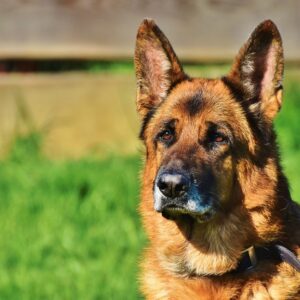There’s a widely shared belief, which goes something like, “You can’t teach an old dog new tricks.” But is this truly a fact, or is it simply a misrepresentation of what our senior canine companions are capable of? Let’s dive into debunking this age-old myth.
Understanding the Neurology of Dogs
Before we examine the validity of the sentiment that senior dogs are incapable of learning new routines or tricks, it’s essential to comprehend the fundamental tenets of dog neurology. Dogs, like humans, possess the remarkable ability of neuroplasticity; the ability to change their brain structures and functions in response to new experiences, learning, and adaptation. This phenomenon occurs throughout a dog’s life, including in their senior years. Therefore, contrary to popular belief, senior dogs can indeed learn new tricks and modify their behaviours.
Age is not a Barrier
Age, in itself, creates no barrier to learning. While physical limitations or health challenges may necessitate some modifications to the training techniques or expectations, there is no physiological reason why a senior dog cannot learn a new trick, command, or behavioural modification. Each dog, like a human, has its own pace and style of learning, and successful training can be achieved when these individual learning modalities are respected and incorporated into the instruction.
Benefits of Training Senior Dogs
-
Mental Stimulation
-
Improved Quality of Life
-
Strengthened Bonding
Training is not merely about teaching tricks or commands—it can also provide the much-needed mental stimulation senior dogs require. As they age, regular mental workouts help to keep their brains vibrant and can help slow down the progression of cognitive dysfunction syndrome (canine equivalent of Alzheimer’s disease).
Training can improve the quality of life for our senior dogs by strengthening the bond between pet and pet-parent and providing them with the opportunity to experience new, enjoyable experiences. Regular training also helps maintain their physical agility, which curbs the onset of aging ailments.
Effective training techniques prioritize positive reinforcement, which bolsters the bond between dogs and their humans. This deepened connection, facilitated by consistent, positive interaction through training, is beneficial for both pet and owner and can make our senior dogs’ sunset years even more precious.
Tips for Training Senior Dogs
When deriving a strategy for training a senior dog, certain factors must be considered, including the dog’s physical fitness, overall health, breed characteristics, and previous training experiences. Here are some tips that can increase the effectiveness of training sessions for older dogs:
-
Start with a Vet Check
-
Modify the Training Schedule
-
Be Patient and Positive
Any training regimen, especially with senior dogs, should commence with a comprehensive veterinary check-up. This will ensure the training plan suits the dog’s physical health conditions and that no rare health concerns could hinder the training process.
Elderly dogs may not have the same level of energy as their younger counterparts. Hence, training sessions should be short and consistent, ensuring they don’t tire out easily. A stuffed but relaxed training schedule could keep them physically and mentally stimulated without overworking them.
Senior dogs may take a bit more time to learn new tricks or commands compared to younger ones. And that’s perfectly okay. Patience and positivity are key aspects of training any dog, more so in their senior years. Encourage them often, reward them, and ensure they know they’re loved and appreciated.
Conclusion
Ultimately, debunking the myth that ‘you can’t teach an old dog new tricks’ isn’t just about proving that senior dogs can learn. It’s about acknowledging their capacity for lifelong learning and recognizing that their potential goes beyond what most people presume. Training should be seen as an enjoyable activity that fosters a stronger bond between dogs and their humans and promotes mental and physical wellbeing for our beloved senior companions.
